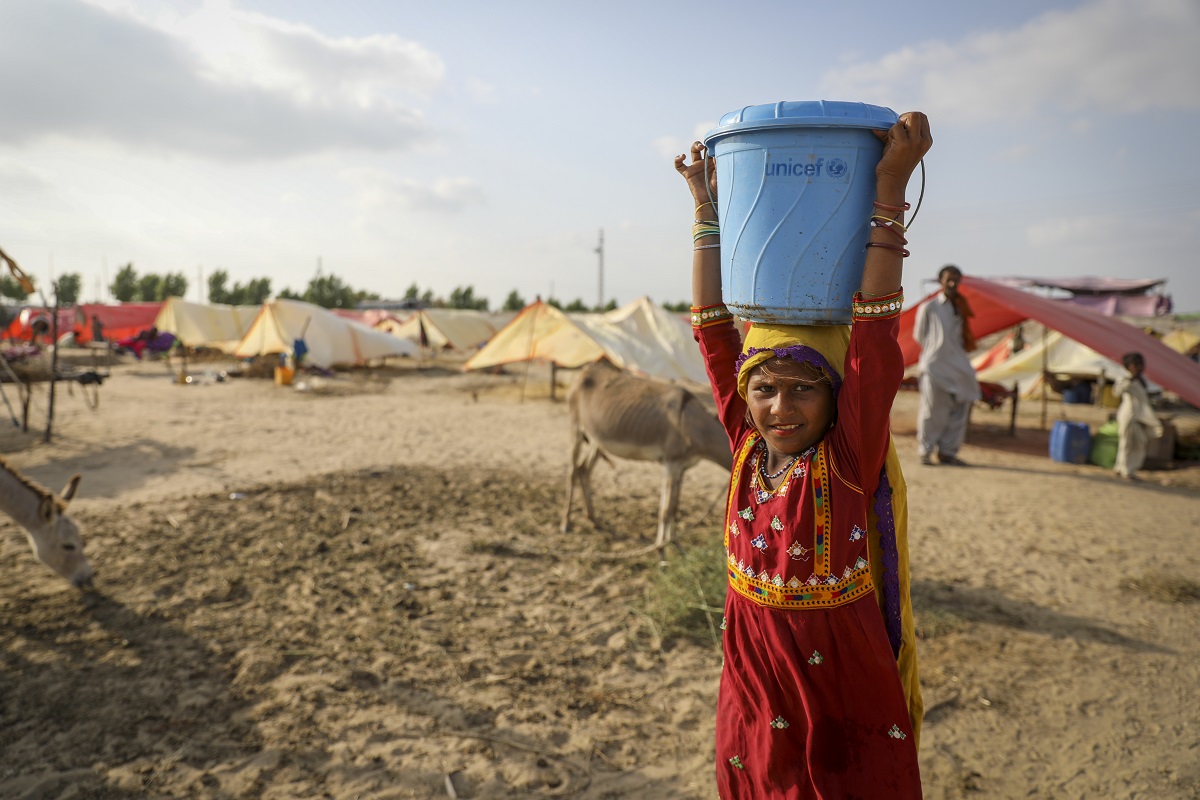UNICEF: 347 million children affected by water scarcity in South Asia
This is the highest figure reported by the United Nations Children's Fund anywhere in the world. While climate change will continue to have a negative impact, access to safe drinking water is expected to significantly improve children's well-being by 2030. At COP28, the UN agency will highlight the need to include children in climate projects.
New York (AsiaNews) – Children in South Asia are more exposed to water shortages than anywhere else in the world, this according to a press release published by UNICEF today.
At least 347 million children are affected by high or extremely high water scarcity in the eight countries of the region (Afghanistan, Bangladesh, Bhutan, India, Nepal, Maldives, Pakistan and Sri Lanka).
“Safe water is a basic human right, yet millions of children in South Asia don’t have enough to drink in a region plagued by floods, droughts and other extreme weather events, triggered increasingly by climate change,” said Sanjay Wijesekera, UNICEF Regional Director for South Asia
Lack of water directly affects the well-being and growth of children, exacerbating existing situations of disease, food insecurity and malnutrition.
And that is not all. Children in South Asia “often live in a vicious cycle of drought and water scarcity. When village wells go dry, homes, health centres and schools are all affected,” Wijesekera added, noting that climate unpredictability will only make the situation worse.
It is estimated that the region has only 4 per cent of the world’s renewable water (including the normal hydrological cycle).
Droughts are becoming more frequent and severe, while lasting longer as well. Water scarcity is due not only to climate change, but also to greater demand, which in recent years has been compounded by poor management of water resources and infrastructure.
The Gangetic Basin that covers Pakistan, India, Bangladesh and Nepal is the most exploited aquifer in the world, negatively impacting groundwater’s capacity to recharge. In these countries, 70 million children live in drought-prone regions where aquifers are severely over-pumped.
The UNICEF report also shows that children in South Asia are the most affected by water vulnerability, a combination of high levels of water scarcity and very low levels of drinking water availability.
In 2022, 45 million children in South Asia did not have access to safe drinking water, while another 169 million were exposed to extreme vulnerability, more than in any other region in the world in 2022.
With respect to water vulnerability, South Asia is followed by East and Southern Africa (with 130 million children) and West and Central Africa (102 million).
The outlook for the future is quite negative; every child in South Asia is affected by at least one climate-related risk or stress factor.
More than 600 million children – about twice the population of the United States – are exposed to diseases such as malaria or dengue fever due to rising temperatures and the proliferation of mosquitoes.
On a positive note, progress in South Asia will more than halve the children who do not have basic drinking water from 45 million to 18 million.
Despite children's particular vulnerability to climate change, only 2.4 per cent of climate funding from major multilateral climate funds supports projects that include child-responsive activities.
“Unless we act now, children will continue to suffer,” Wijesekera explained, noting that UNICEF's willingness to present its report at the next COP28 which will begin at the end of the month in Dubai.
“It is incumbent on governments, private sector and civil society organizations to work in partnership to improve water management and design services that can withstand climate shocks.”
12/02/2016 15:14
24/08/2021 09:12







.png)










